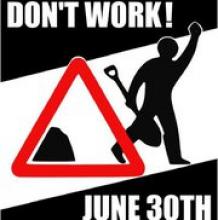Lies, damned lies and unemployment statistics
According to the headlines, UK unemployment fell 88,000 in the three months to April this year to 2.43 million, the biggest drop since the summer of 2000. This was heralded as proof that the government’s policies are working, and that the private sector is creating more jobs than the 143,000 public sector positions slashed during the same period. But dig a little deeper and the spin unravels.
The Office for National Statistics is open that the fall “was mainly due to an increase of 80,000 in the number of students not active in the labour market.” This seems to have been due to them simply being reclassified, rather than them all suddenly finding jobs. So that leaves just 8,000 jobs ‘created’.
